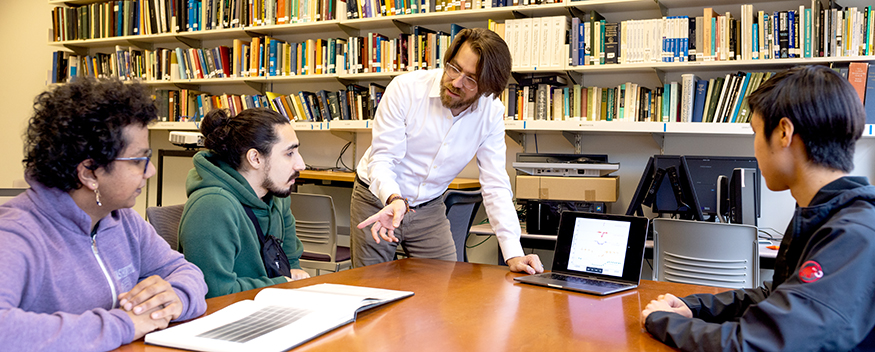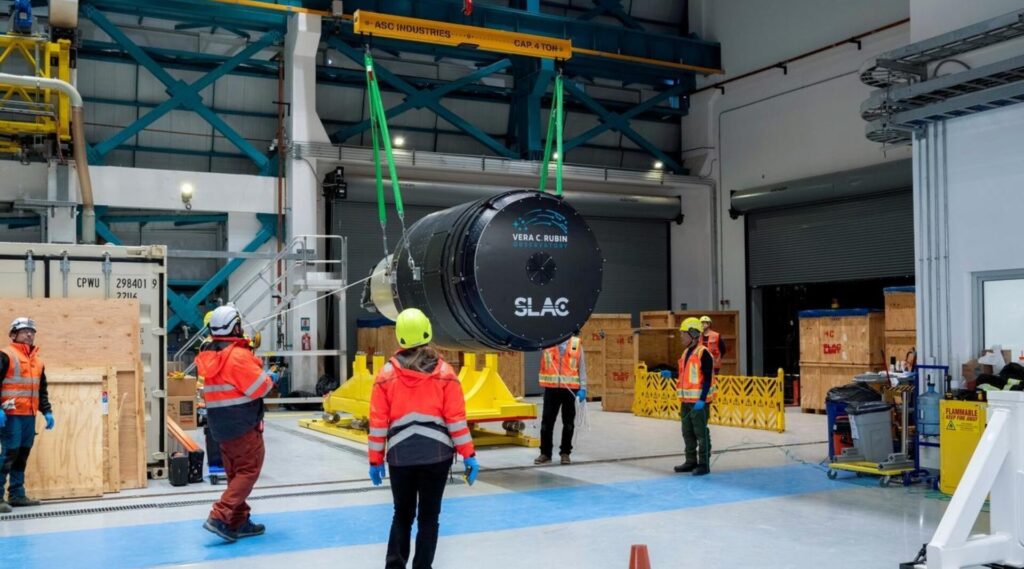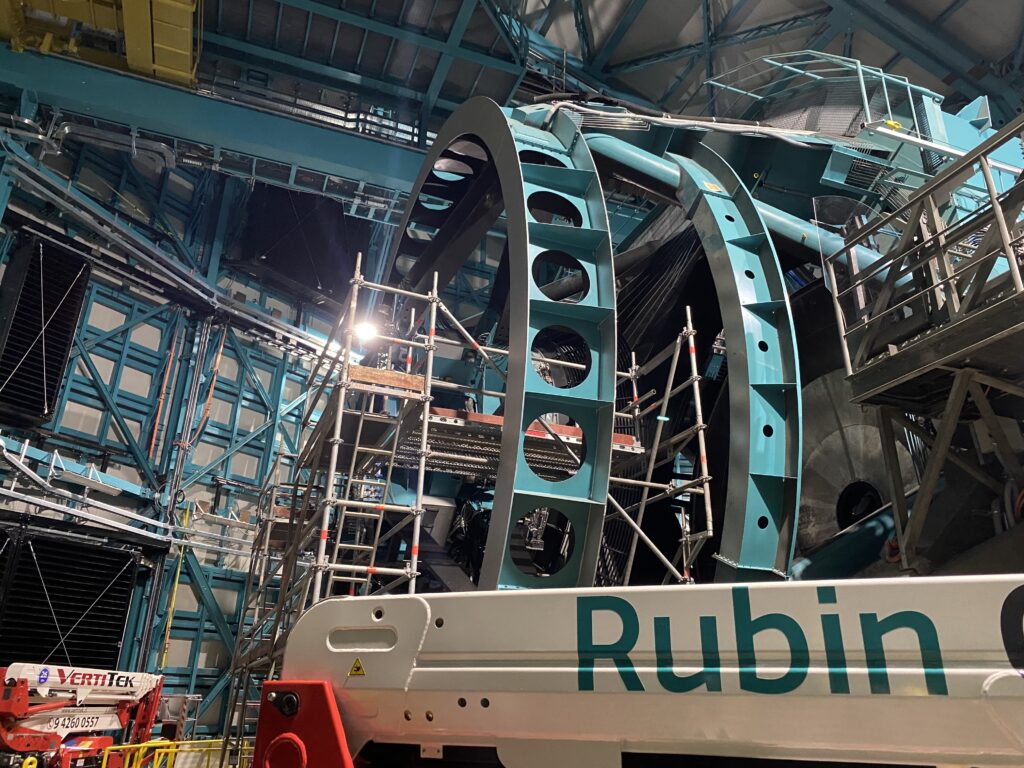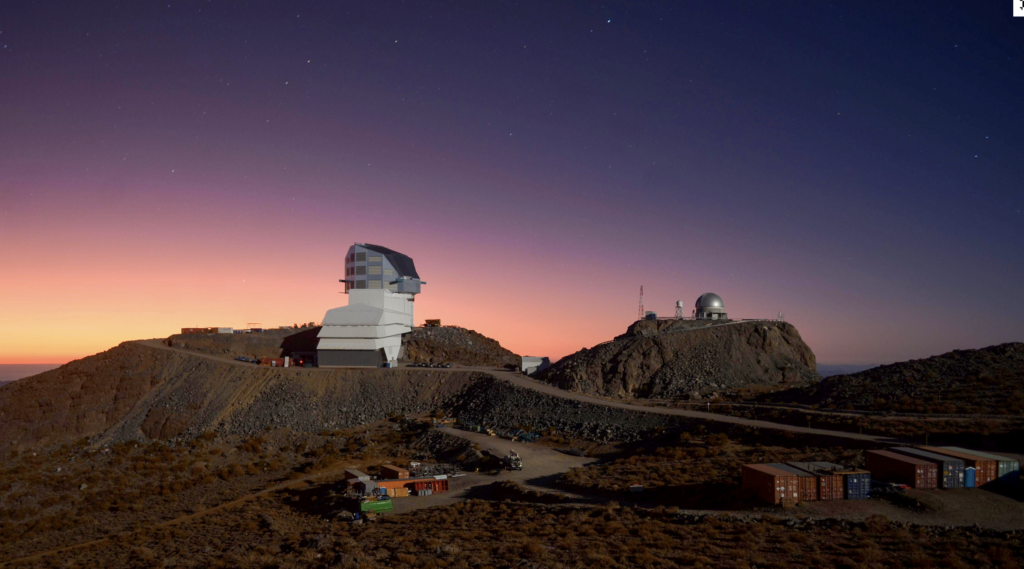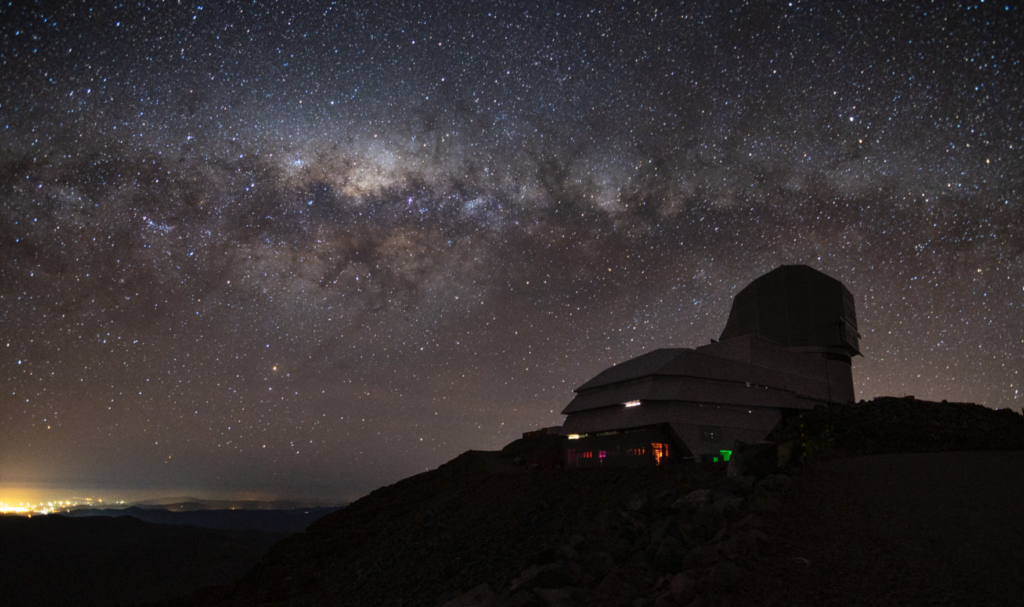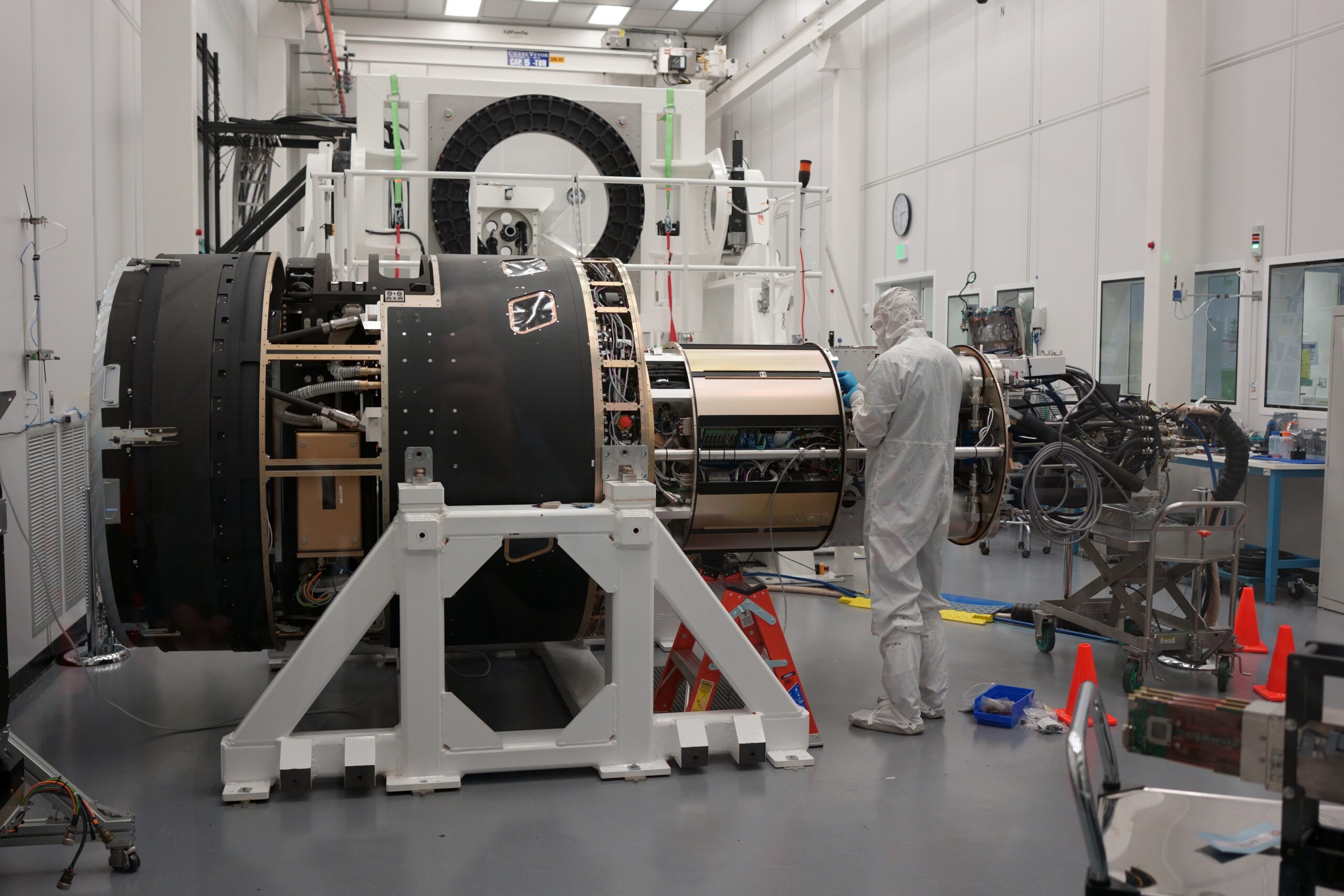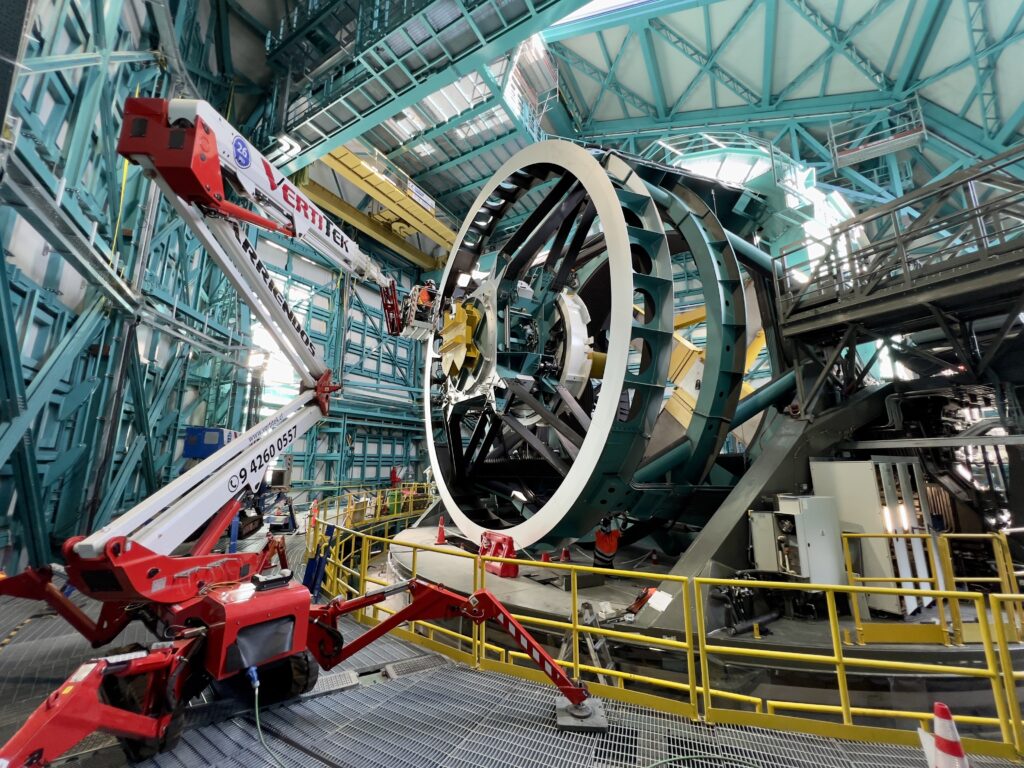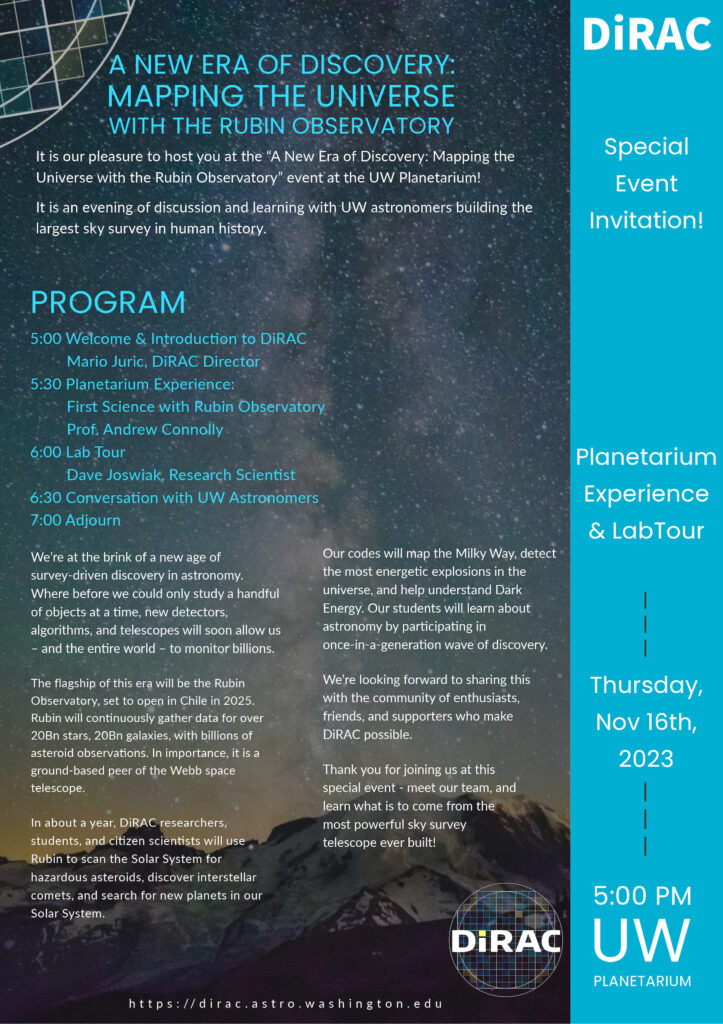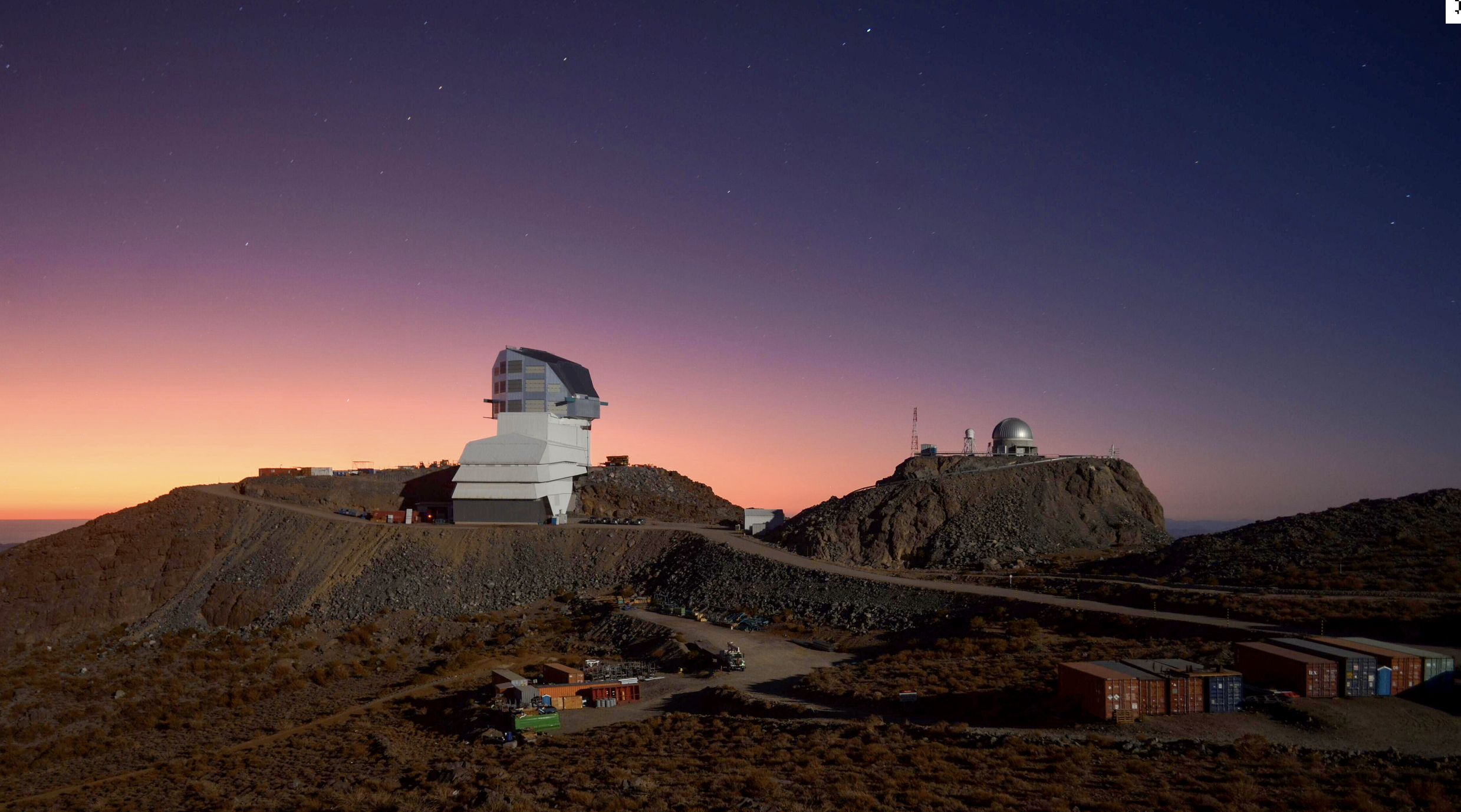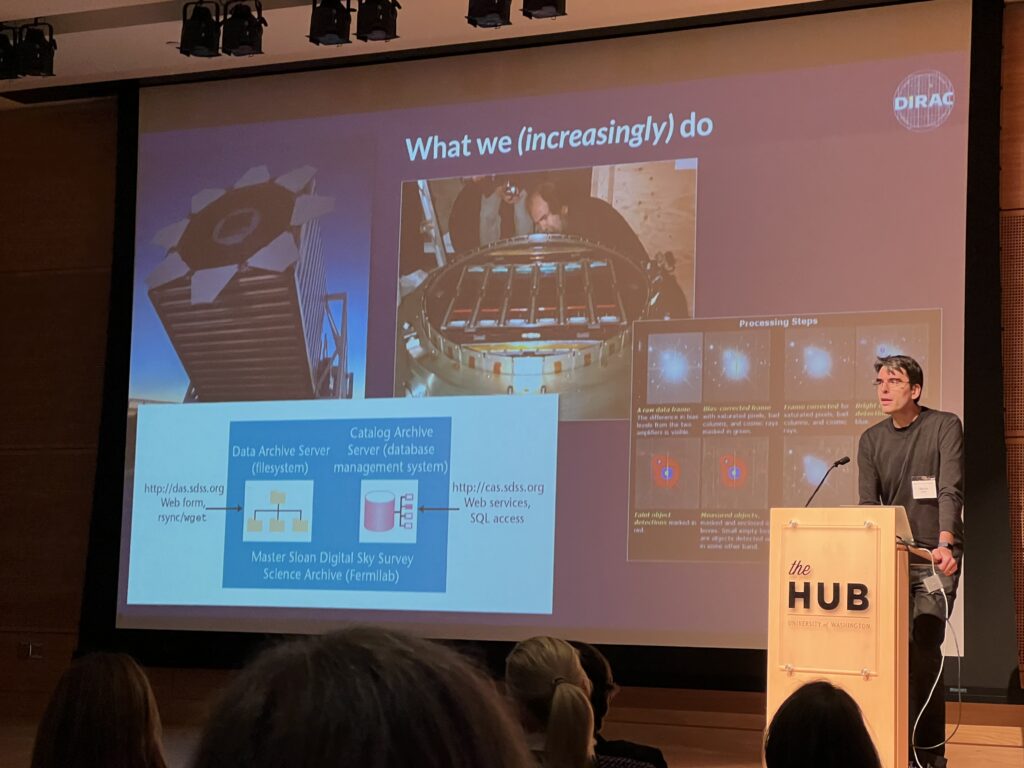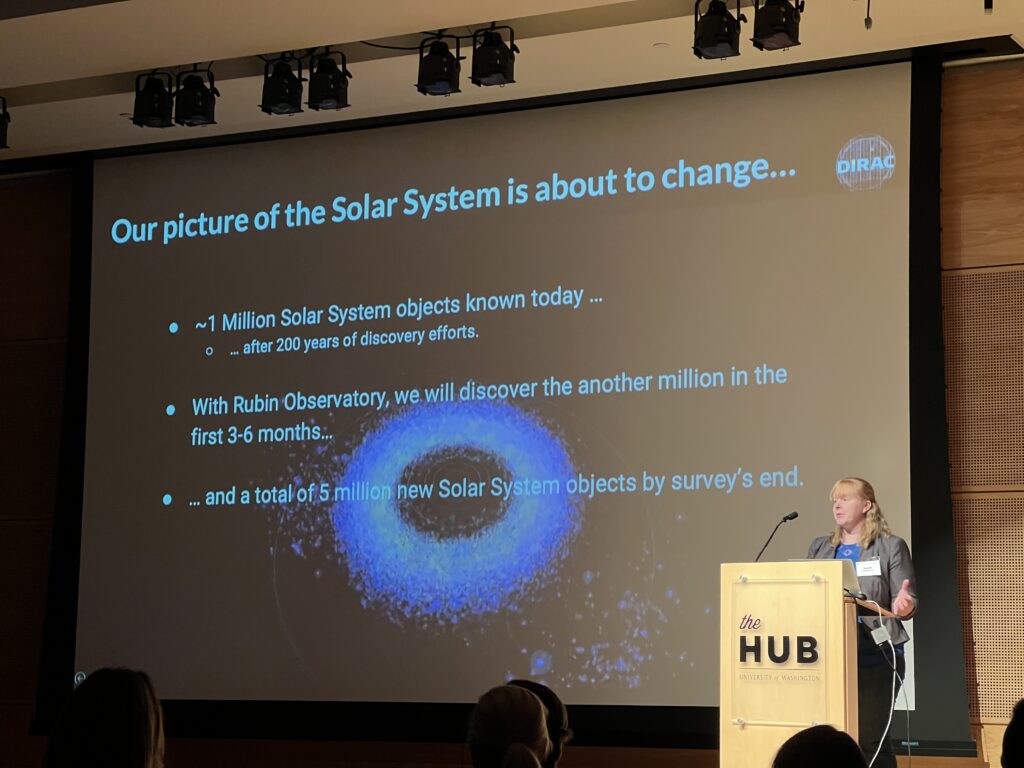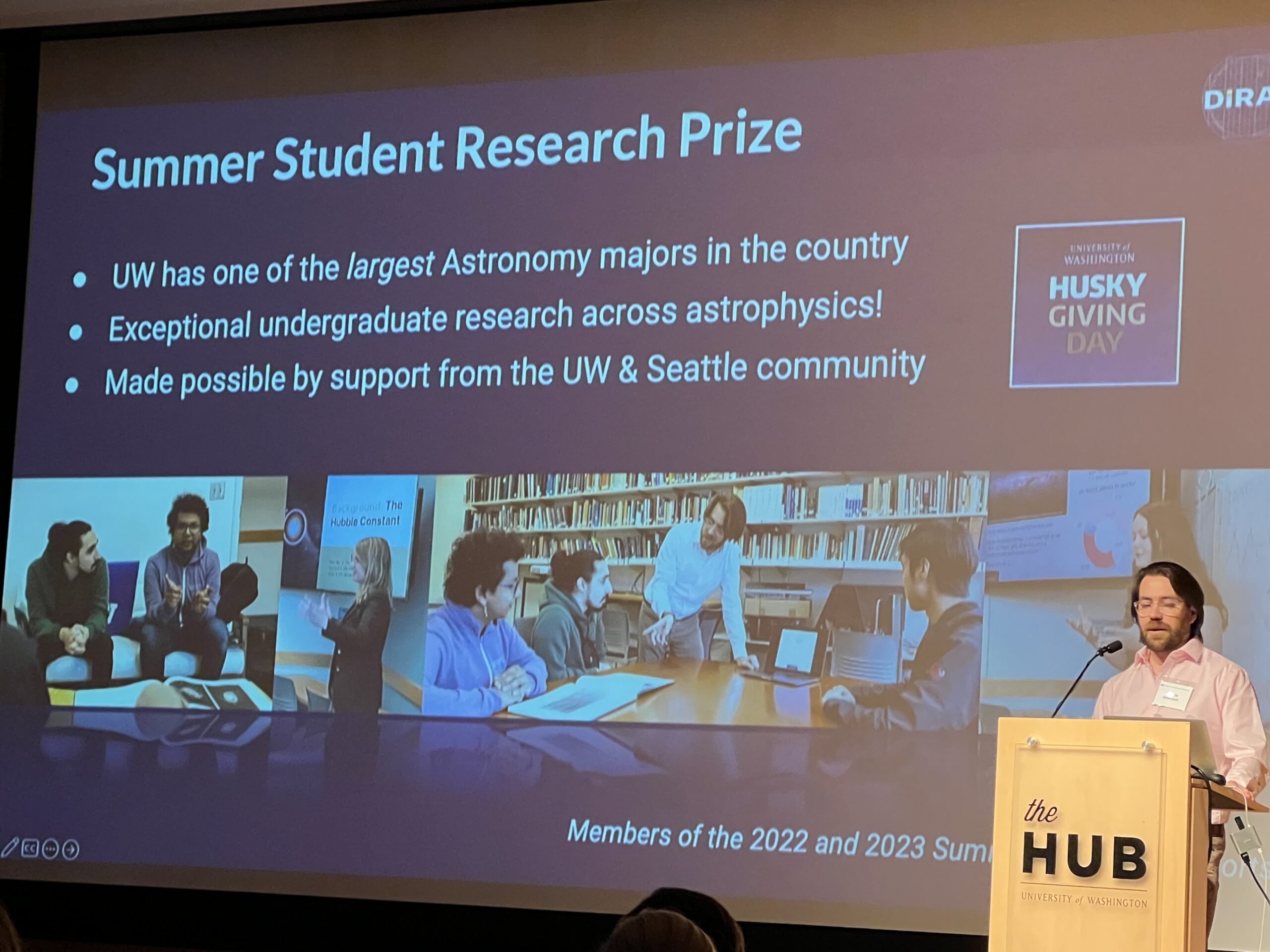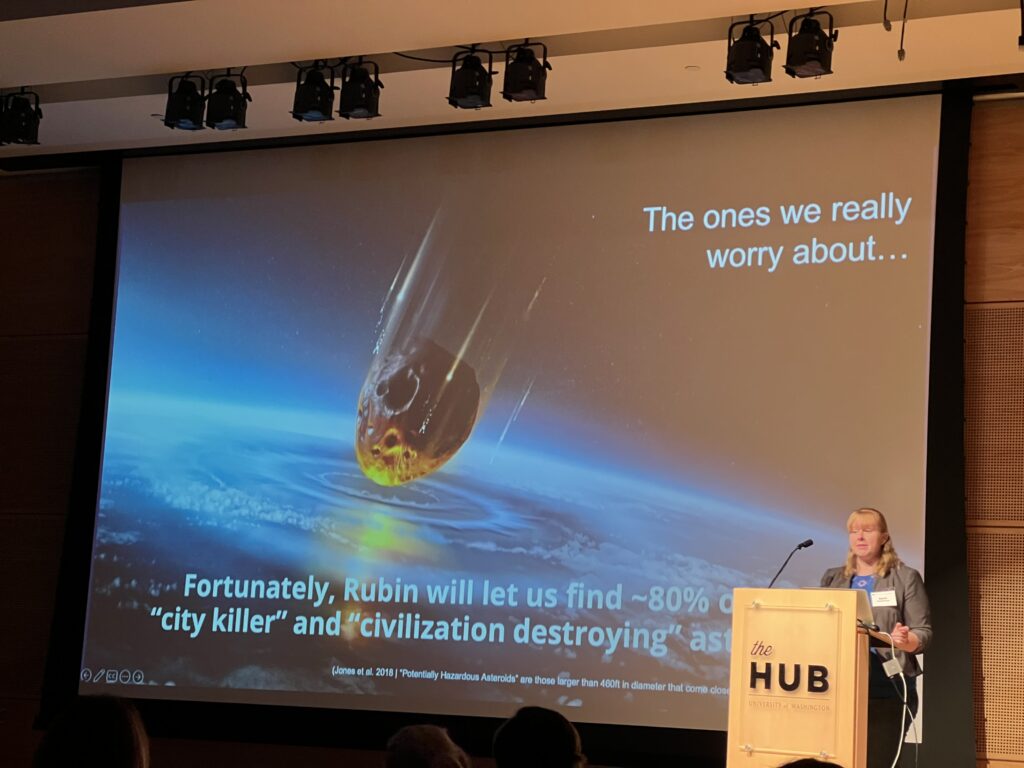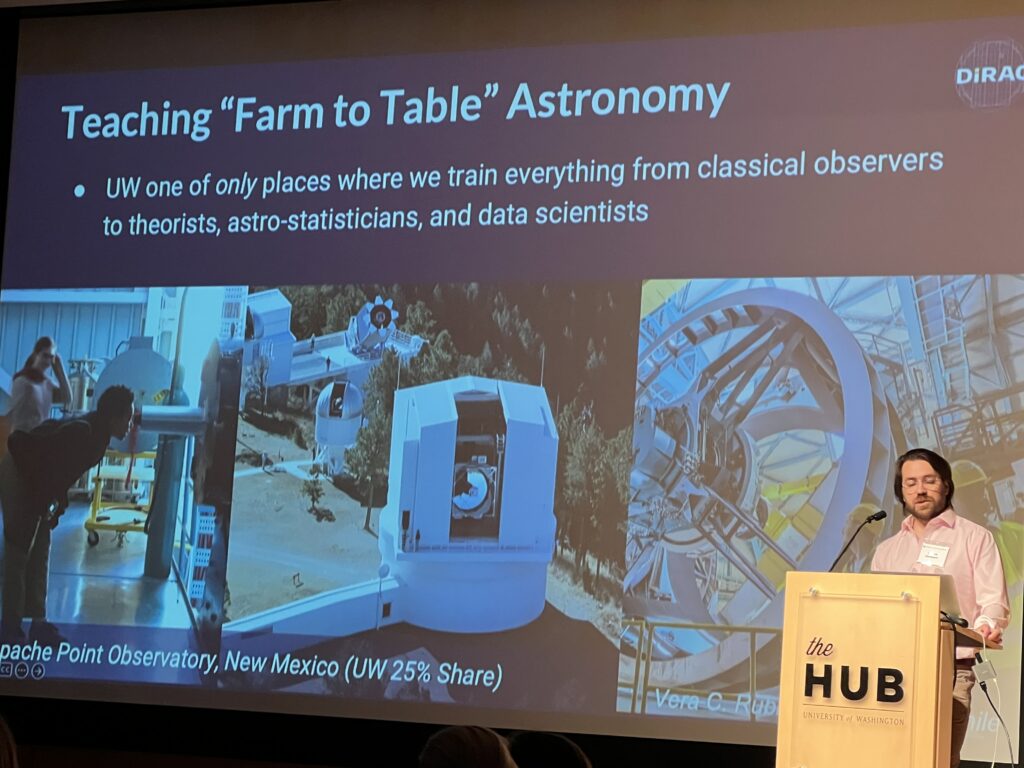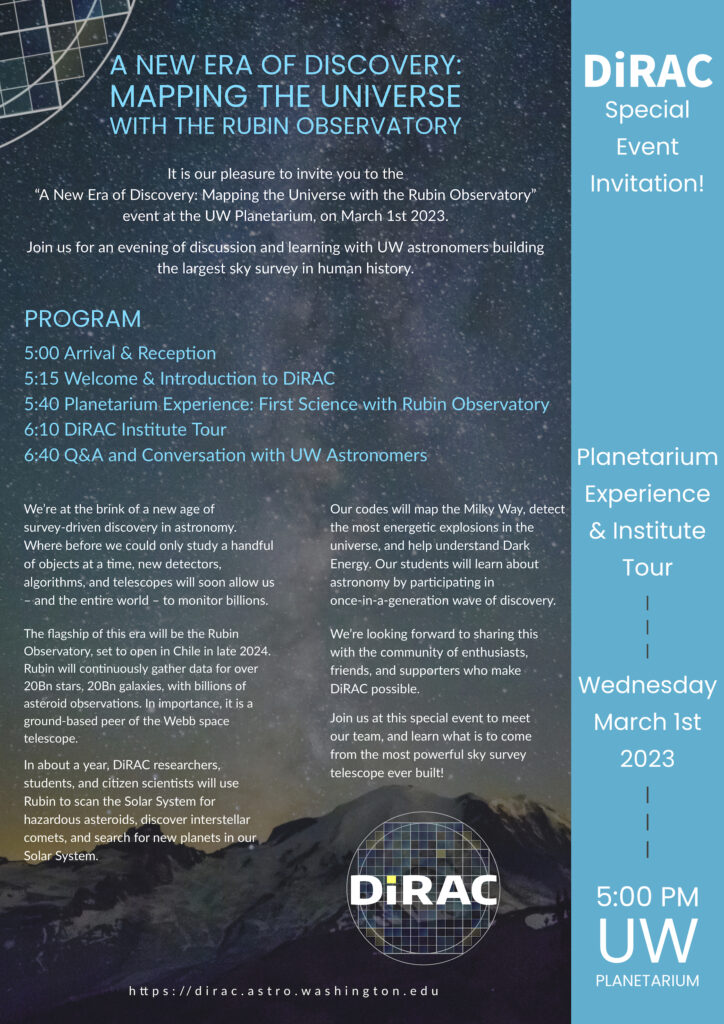It was 20 years ago that I first heard rumblings about a new, super power, ambitious survey telescope that could capture a “movie of the sky”. This idea became the Vera C. Rubin Observatory, with its unique Simonyi Survey Telescope, which will conduct the Legacy Survey of Space and Time (LSST). Today we got our first look at what this new era of astronomy will be, with the first images being released from Rubin. You can explore them now on the Skyviewer site!
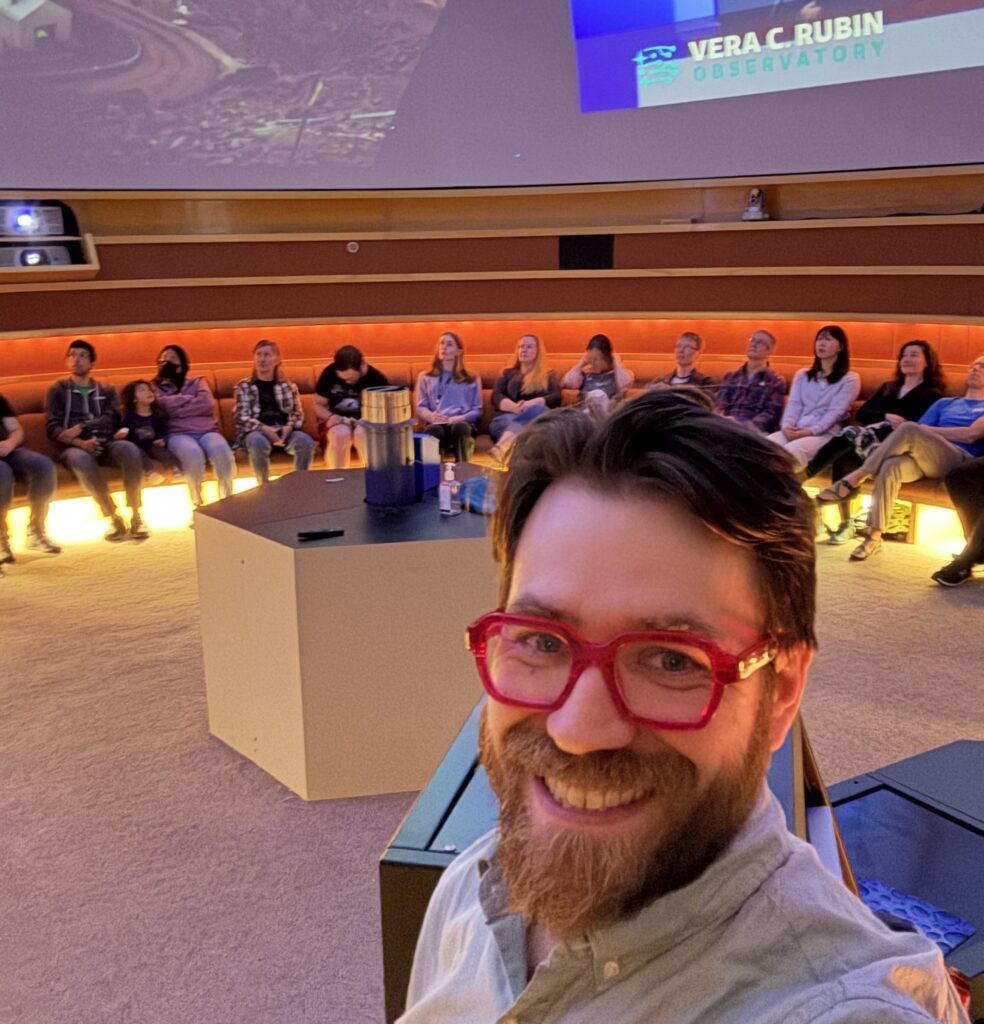
The very idea of this telescope has guided our work for a long time. DiRAC itself was created from the growing need in the “Rubin Era” to combine advances in computing technology with domain expertise of seasoned astronomers. Today we truly move in to this new Era, and nothing in our work will ever be the same again.
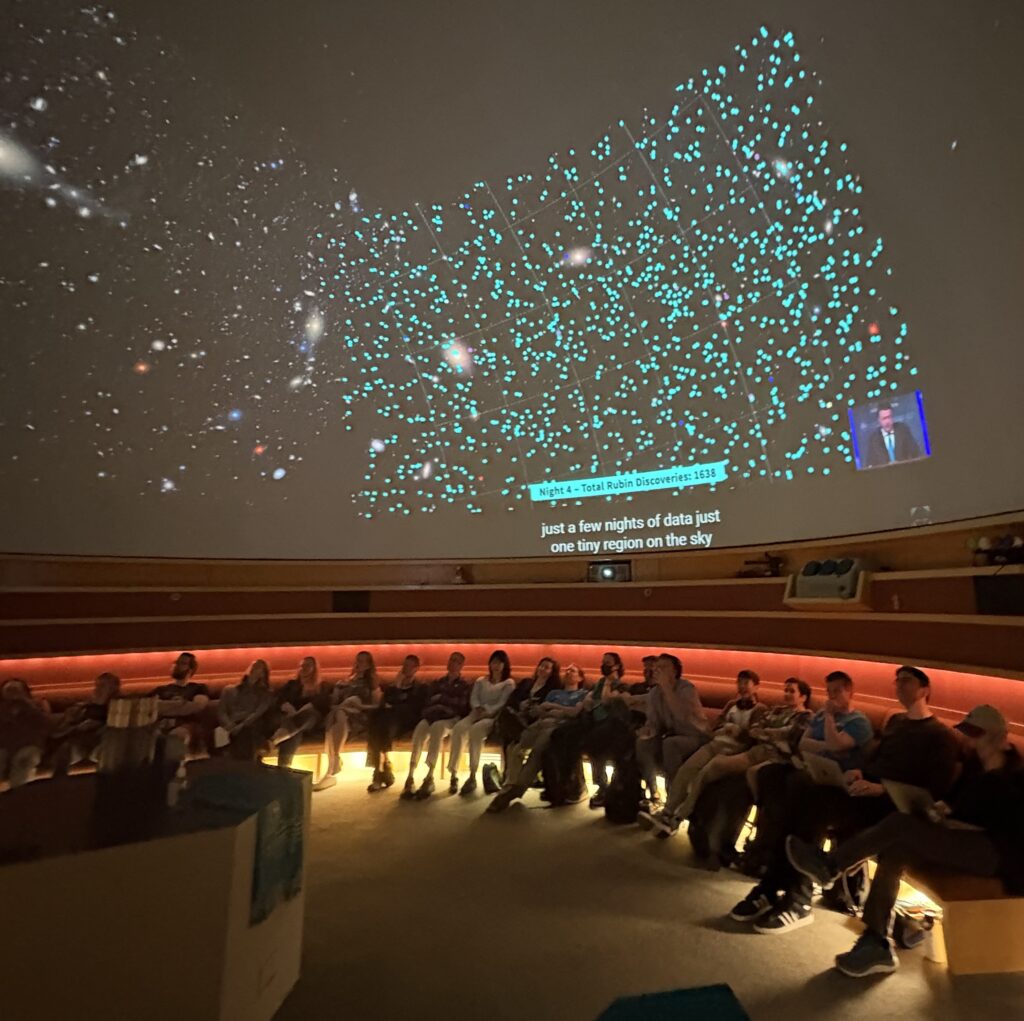
It was a joy to watch with a packed house in the UW Planetarium this morning, as these images were released to the world. This moment is a massive accomplishment for so many people here at UW and DiRAC. As our friend and colleague, Prof. Željko Ivezić, was announcing the first asteroids found in this data, we cheered for our incredible Solar System team that made these discoveries possible. The variable stars announced today are the first glimpse at the incredible real-time discovery that will be made available by the Alert and Data Management teams we host here, and the Time Domain Analysis group. The search for Dark Matter is a key goal for Rubin, and already today we’re having excited hallway discussions about how to interpret the fine details in the images we saw…

So now the real fun begins! In many ways this marks the beginning of “Phase 2” for DiRAC, as we enter the Era of real data from LSST/Rubin. Please join us Thursday evening in Kane Hall as we tell more of the stories from the past 20 years at UW Astronomy and the Seattle astronomy community, and the excitement building for the next 10 years at DiRAC.
